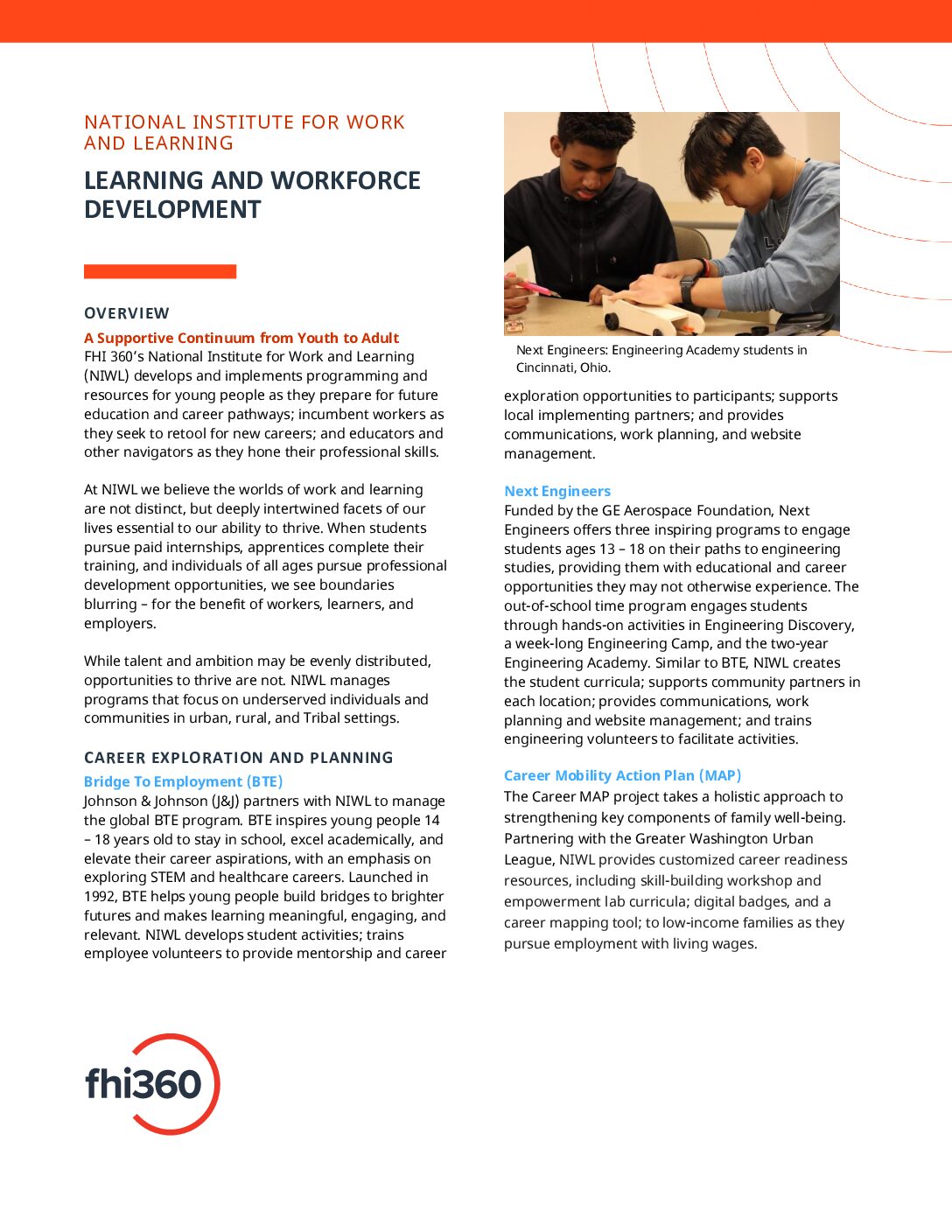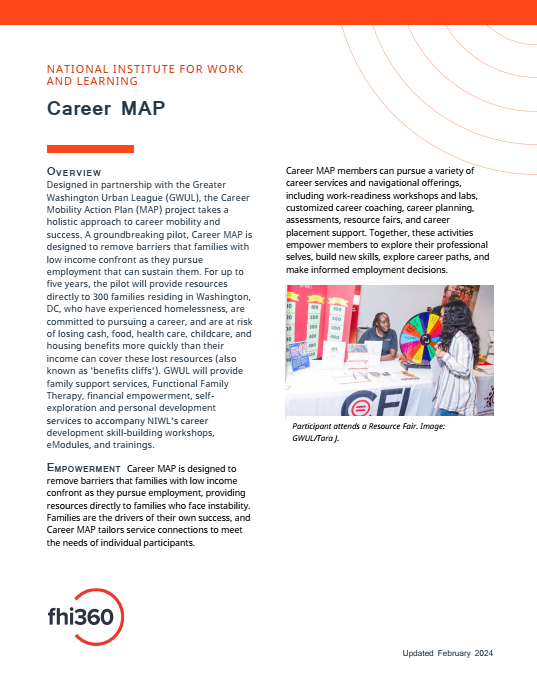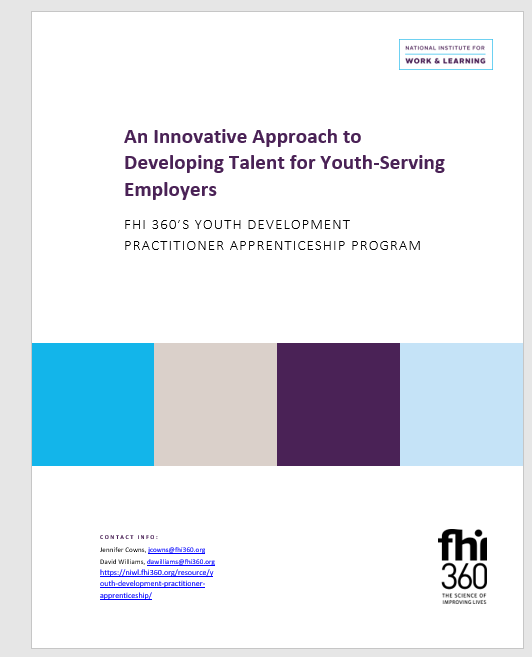NIWL’s programs serve youth and young adults in career exploration, workforce development, and education to career transitions – all to serve the greater workforce environment in a way that benefits workers, learners, and employers. Read the full overview to learn more.
Topic: Workforce Development
Coming Soon!
Building and maintaining strong employer partnerships is essential for organizations seeking to match talented job seekers with the right opportunities. Employers are not just looking for job candidates; they are seeking long-term, strategic partners who can provide ongoing workforce solutions that align with their business goals. This toolkit is designed to equip workforce development staff with the strategies and insights needed to engage effectively with employers, from the initial prospecting stages to sustaining long-term relationships. Key areas explored:
- Leveraging LMI for Employer Partnerships
- Prospecting and Researching Potential Employer Partners
- Crafting a Communication Strategy
- Nurturing and Growing Employer Partnerships
- Employer Incentives and Business Benefits
- Deepening Employer Relationships and Addressing Challenges
- Ongoing Partnership and Employer Success
FHI 360’s National Institute for Work and Learning (NIWL) provides a variety of resources and learning opportunities, including facilitated trainings and workshops, self-paced e-Modules, and toolkits, to help first-time volunteers—as well as those who would like a refresher—prepare for, engage with, and inspire youths. Read this catalog to learn more.
For Second Chance month, we spoke to Olivia Murphy, who serves as senior career coach (and now youth program manager) for The Spot: Young Adult Opportunity Center in Louisville, KY. The story highlights how KentuckianaWorks navigates the challenges of life after incarceration, and how their impact encourages people to embrace second chances.
Read the full story to learn more.
As part of our Apprenticeship Programs, FHI 360 is partnering with New Ways to Work to develop a Substance Use Disorder and Mental Health Counselor Apprenticeship. This apprenticeship equips direct services employers with the resources they need to recruit workers with life experiences relevant to the communities they serve.
Through a combination of paid on-the-job learning (OJL) and coursework, apprentices will gain an alternative, rigorous, and rewarding point of entry into a profession that traditionally requires post-secondary education. Upon completion, program participants receive a national credential from the U.S. Department of Labor. To learn more, read our fact sheet.
As part of our Apprenticeship Programs, FHI 360’s Peer Support Specialist Apprenticeship partners with the Public Works Alliance (PWA) to train apprentices who have experienced recovery from personal and societal challenges. These include substance use disorder, PTSD, the re-entry process, and many other challenges. This shared experience enables apprentices to support others who are going through similar hardships.
By partnering with FHI 360, employers can use this apprenticeship to reinforce a holistic approach in their mental health services. Apprentices who complete their apprenticeship earn a national credential from the U.S. Department of Labor (DOL). To learn more, consult our fact sheet.
FHI 360’s NIWL Apprenticeships bring together experts in workforce development to expand existing nationally registered apprenticeship programs (RAPs), such as the Youth Development Practitioner Apprenticeship (YDPA) and develop new opportunities within the care economy such as youth services, peer support, substance-use counseling, and mental health counseling.
Upon completion, apprentices receive a nationally recognized credential from the U.S. Department of Labor. Read the fact sheet to learn more.
“To me, that’s the biggest message with this apprenticeship — this is the perfect way to learn how to change lives.”
As we celebrate National Apprenticeship Week 2024, we highlight two Lake County Youth Development Practitioner Apprentices who use their work to break the cycles of trauma and heal their communities: Luis Garcia Jr. and Jenessa Armstrong. Click here to read about their journeys in becoming the person they wanted to have in their corner growing up.
Designed in partnership with the Greater Washington Urban League (GWUL), the Career Mobility Action Plan (MAP) project takes a holistic approach to career mobility and success. A groundbreaking pilot, Career MAP is designed to remove barriers that families with low income confront as they pursue employment that can sustain them.
FHI360’s Youth Development Practitioner Apprenticeship program offers employers the opportunity to recruit and train employees while giving back to the community and filling their talent pipeline. YDPA targets both existing professionals and opens options for new professionals with lived experience in the communities they serve. Occupations include youth service intake counselors, outreach workers, or justice reentry case workers among others.









